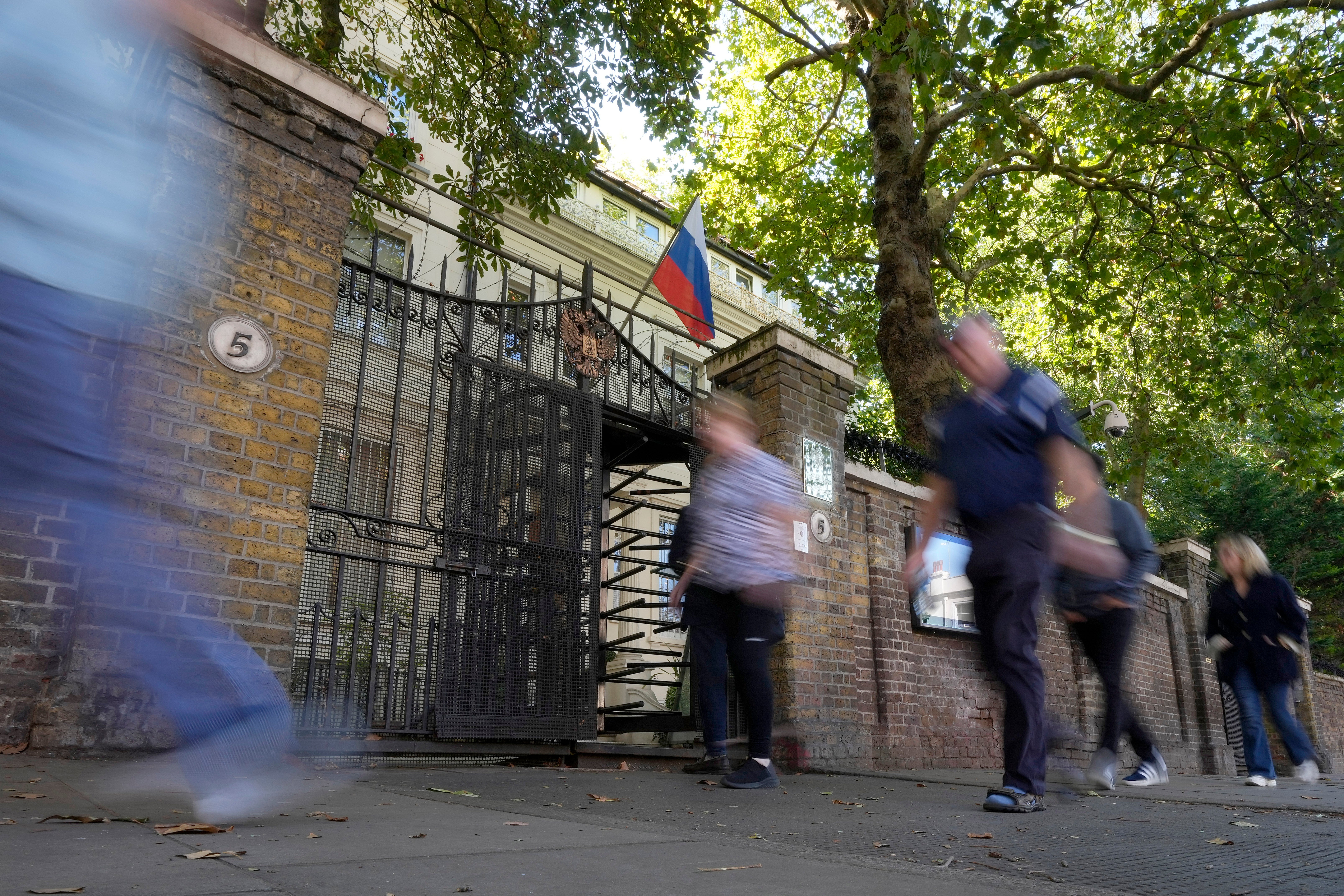Russia-UK expulsions have targeted scores over past decades
Russia’s announcement of expelling six British diplomats for alleged espionage has been denounced by the United Kingdom

Your support helps us to tell the story
From reproductive rights to climate change to Big Tech, The Independent is on the ground when the story is developing. Whether it's investigating the financials of Elon Musk's pro-Trump PAC or producing our latest documentary, 'The A Word', which shines a light on the American women fighting for reproductive rights, we know how important it is to parse out the facts from the messaging.
At such a critical moment in US history, we need reporters on the ground. Your donation allows us to keep sending journalists to speak to both sides of the story.
The Independent is trusted by Americans across the entire political spectrum. And unlike many other quality news outlets, we choose not to lock Americans out of our reporting and analysis with paywalls. We believe quality journalism should be available to everyone, paid for by those who can afford it.
Your support makes all the difference.Moscow's announcement Friday of expelling six British diplomats for alleged espionage has drawn a strong rebuke from the United Kingdom while also intensifying animosity between Russia and the West over the war in Ukraine.
However, the six are but a small number in the history of Moscow-London acts of expulsion, which have a record of angry bursts over the past decades. Both sides have expelled more than 20 at a time — and in one case, more than 100.
The expulsions are frequently tit-for-tat moves, with one side retaliating for the act of the other, something Russian diplomatic language calls a “mirror answer.”
Here is a look at some major acts of expulsion between London and Moscow:
The ‘Skripal Affair’ in 2018
Sergei Skripal, a Russian intelligence officer who was a double agent for Britain, was severely poisoned along with his daughter in Salisbury, where he had settled after being released by Russia in a 2010 prisoner swap. The poison was identified as Novichok, a Soviet-developed nerve agent.
A week and a half after the Skripals were discovered in grave condition, British Prime Minister Teresa May declared Russia to be responsible for the attack and ordered the expulsion of 23 diplomats. Russia then expelled an equal number of Britons.
The ‘Gordievsky Scandal’ in 1985
Oleg Gordievsky was the KGB's station chief in London, but had been passing along information to British intelligence for years. He was called back to Moscow for consultations in 1985 and decided to go despite fears that his role as a double agent might have been exposed.
He was interrogated but not charged, and Britain arranged an undercover operation to spirit him out of the Soviet Union. In the aftermath of the operation, Britain used information from Gordievsky to expel 25 Soviet diplomats. Moscow retaliated two days later with the same number.
Operation FOOT in 1971
In an effort to curb suspected widespread espionage by Soviet diplomats and even their wives, British agents managed to recruit a member of the Soviet trade delegation who was also a KGB operative. The agent, Oleg Lyalin, provided extensive information identifying others working for the KGB.
Britain hesitated to act on the information, concerned it could jeopardize international talks that were underway on the status of the divided city of Berlin. After the talks concluded, the U.K. announced that 90 Soviet officials would be expelled and 15 others who were out of the country at the time would not be allowed to return — 105 in all.